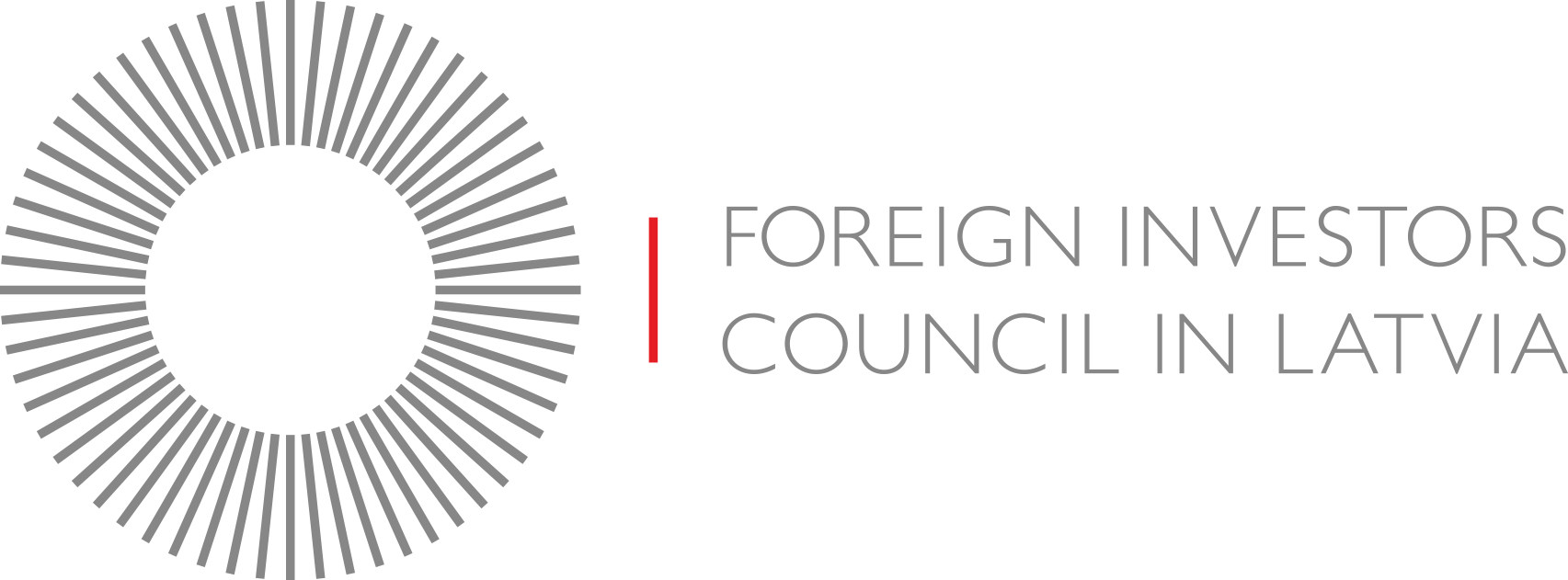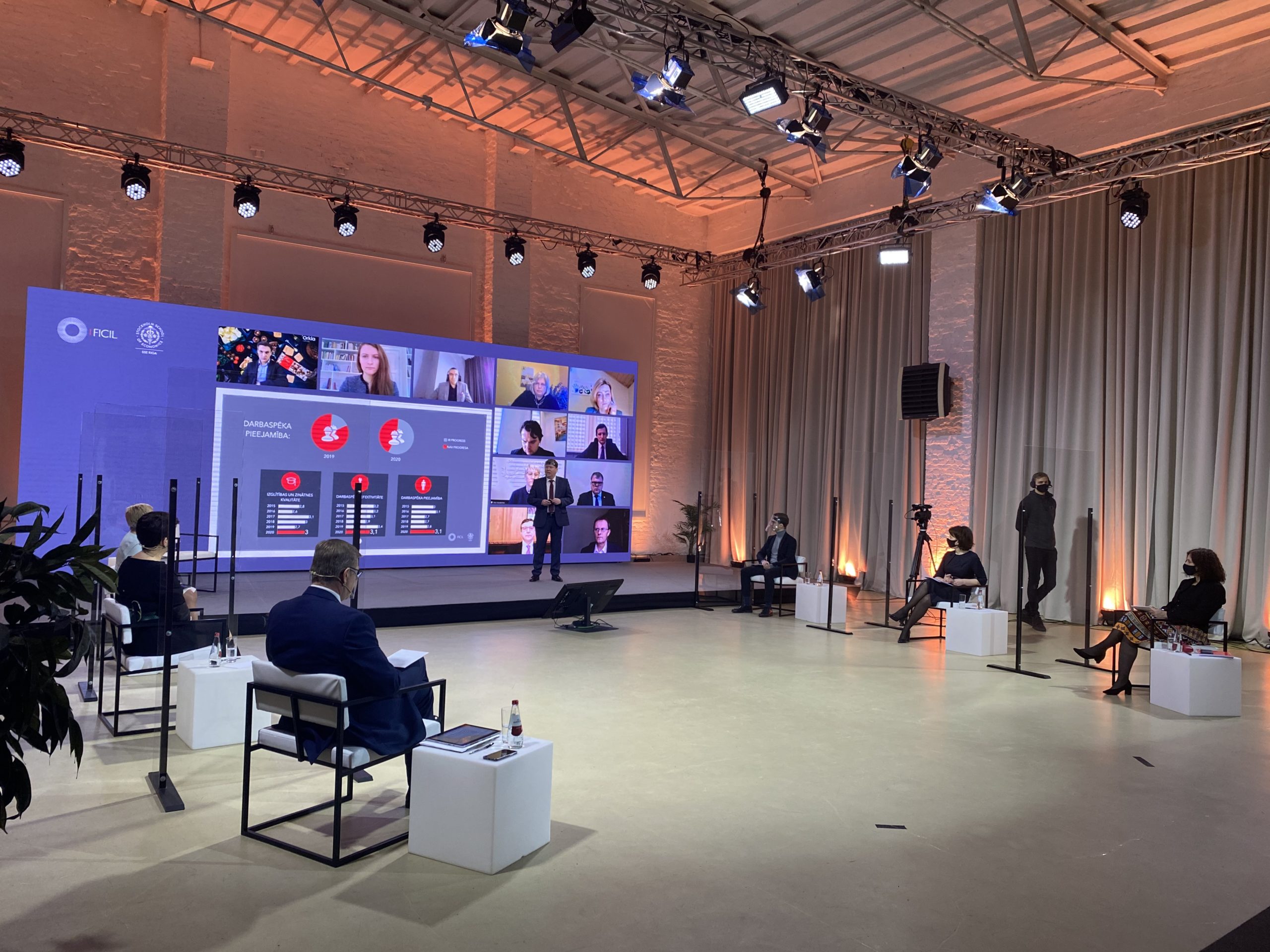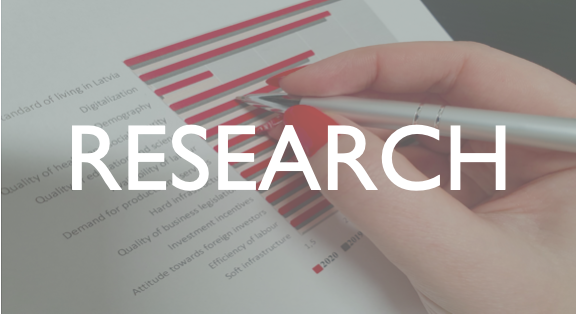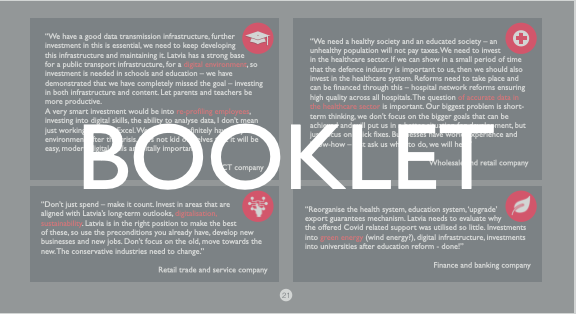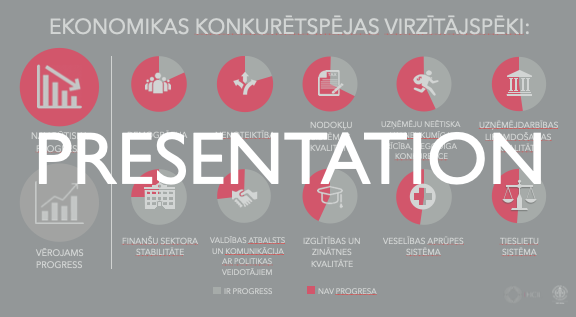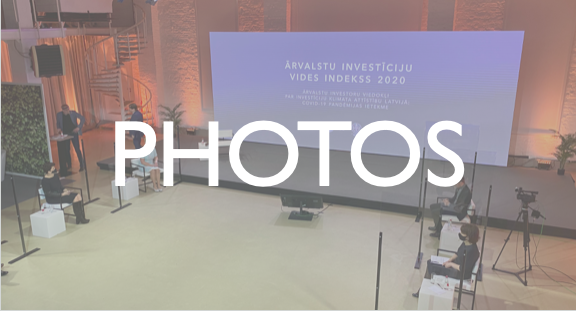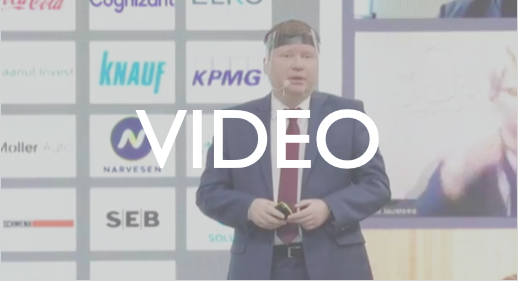Despite the global challenges, the foreign investors’ assessment of Latvia’s investment climate in 2020 increased by 0.1 point compared to the year before, reaching 2.7 points out of five, as concluded in the “Sentiment Index 2020” research by the Foreign Investors’ Council in Latvia (FICIL) and Dr. Arnis Sauka from the Stockholm School of Economics in Riga (SSE Riga).
In 2020, the Sentiment Index study focused on the challenges faced by investors as a consequence of the global pandemic, as well as existing and potential solutions to those challenges. Furthermore, special attention was devoted to discussing the best course of action for economic recovery and efficient use of the Recovery and Resilience Funds. As seen during the discussion at the research launch event, investors and politicians seem to agree – now is the right time to make fundamental changes and achieve significant improvements towards the Green Deal and digitalisation of the country.
“It is clear that we are moving towards a green economy, but we have to realize two things – it is not cheap and it is not convenient. Investors and policy makers have to come together to set a clear plan for the green economy. The current plan for economic recovery is great on a general level, however it lacks specific details on how the goals will be achieved,” says Gunta Jēkabsone, Executive director of Circle K Latvia and Chairperson of the FICIL Executive Board.
Investors also assessed the progress over the last 12 months in the key areas of concern as identified in the previous studies. Major improvements are identified in the financial sector stability, with 75% of interviewed investors seeing progress in this area. Investors appreciate the great amount of work done by policy makers to achieve a positive assessment from Moneyval early in 2020. Nevertheless, the investors’ eyes are now on a successful implementation of a more efficient risk-based approach.
Government support and communication with policy makers is another area where foreign investors see improvements, and 73% of the interviewees think that there has been progress during 2020. The investors are generally appreciative of the work done by the government, the new coalition in Riga and LIAA, and believe that Latvia currently possesses the right foundation to create an attractive investment climate. However, investors continue to stress the importance of cooperation with the industry and assure that businesses are very willing to help with their advice.
At the same time, investors have also identified several areas of concern. Traditionally, demography has received the lowest rating (2.0 out of 5) among the key drivers of economic competitiveness in Latvia that the study focuses on. 82% of the interviewed investors said that there has been no progress in 2020. 80% of the interviewees also highlighted uncertainty, mainly driven by the pandemic, as another alarming area, while 68% of the investors stated that there has been no progress in the quality of the tax system. The latter has been mentioned by investors as a significant obstacle to increase investments, stating that the unpredictable tax system is the biggest risk in the country. Executives expressed that securing additional investment in Latvia would be easier if they could assure their boards that there will not be significant changes in the tax system for at least five years.
Overall, the investors are optimistic about the future and 68% of the interviewed executives stated that their represented companies plan to increase their investment in Latvia. However, as highlighted in the research and the public discussion with policy makers, labour availability remains a concern. Although this factor received a 3.1 rating out of five in 2020, compared to 2.8 in 2019, and 59% of investors claimed that there is at least some progress in the area, this is largely considered as a short-term effect due to the Covid-19 pandemic. Forward-looking solutions are still needed, in order to ensure labour availability in the long-term. This also includes addressing the skills mismatch issue currently visible in the labour market. While labour availability has improved, the rating for ‘labour productivity’ decreased from 3.4 in 2019 to 3.1 in 2020.
“Of course, the Covid-19 situation has provided a short-term solution for the issue of labour shortage, but if we look at the long-term, this problem is not being solved. Eventually, Covid-19 will pass and there exists a risk that the labour shortage will be even bigger than before due to emigration out of Latvia. One issue is labour mobility. Currently, Orkla Latvija is building 2 new factories in Ādaži, where we will need around 400 employees. If the potential employees live in Riga, the current transport connectivity does not really provide efficient labour mobility. Another issue is the available skills in the labour market. There is certainly a shortage of highly qualified labour. In addition, those people that are highly qualified today can very easily work remotely for a company that is based abroad,” says Toms Didrihsons, CEO of Orkla Latvija.
About the research
FICIL Sentiment Index was first launched in 2015 by FICIL in cooperation with SSE Riga. The key aim of the Index is to foster evidence-based policy decisions and promote a favourable investment climate in Latvia. This is the sixth consecutive report, which is based on a survey: mini case studies of foreign investors. During autumn 2020, we interviewed 44 senior executives representing key investors in Latvia, which contribute significantly to Latvia’s economy with 16% of taxes paid by companies, 13% of the total profits and employing 10% of the total workforce in all companies with an annual turnover above 145 000 EUR and 50% foreign capital.
FICIL Sentiment Index 2020 is supported by the Norwegian Embassy in Riga. The full research is available here: https://www.ficil.lv/research/
